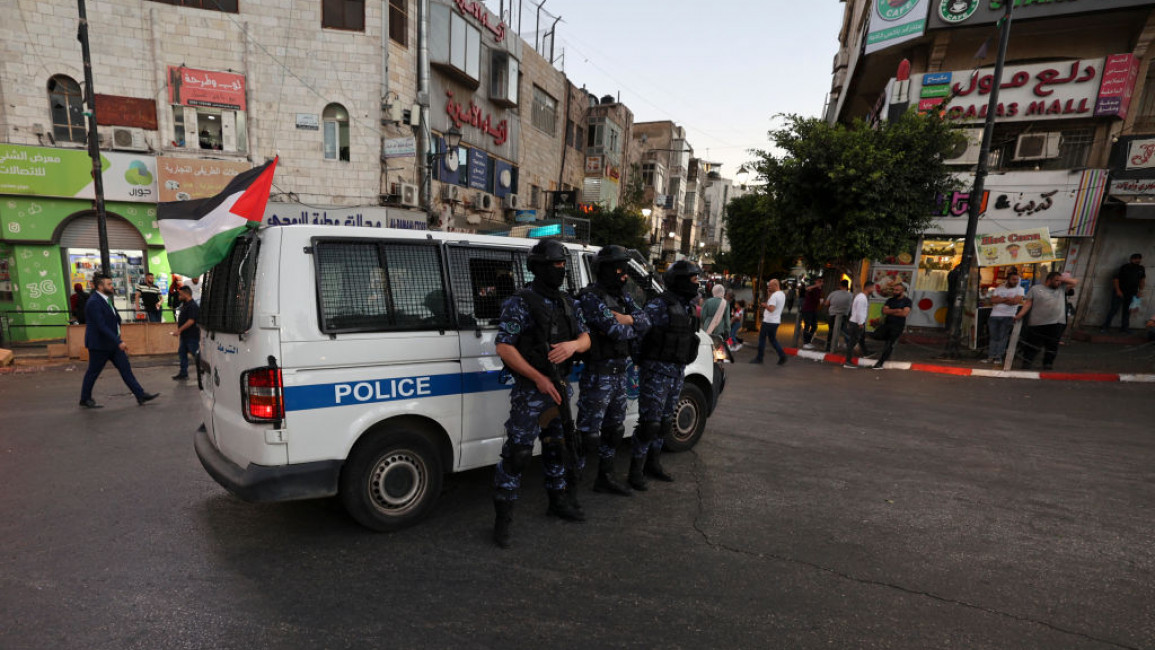Palestinian Authority response to Nizar Banat demonstrators 'violent repression': Amnesty
Recent violence by Palestinian government forces against demonstrators in the West Bank has constituted a "chilling campaign of repression", according to Amnesty International.
The rights NGO slammed the use of "unlawful force" by the authorities in a press release on Wednesday. It said reporters, campaigners and lawyers had been detained without justification, and that arrestees had suffered torture.
The group explained that anger has reached boiling point after prominent anti-government dissenter Nizar Banat died two weeks ago in Palestinian detention.
It said the authorities have used unnecessary strength against demonstrators, including this Monday, when they "violently" broke up those rallying at a Ramallah police station before making 15 or more arrests.
Saleh Higazi, Amnesty's deputy MENA director explained: "Over the past two weeks, Palestinian authorities have launched a deliberate campaign of repression, clamping down on peaceful protesters and carrying out arbitrary arrests in an attempt to instil a climate of fear and crush dissent".
Higazi called for Palestine's long-time president, Mahmoud Abbas, to put a stop to the "chilling crackdown" and see to it that any officers who have perpetrated abuses are held responsible.
"This must start with a thorough, independent and impartial investigation into the death of Nizar Banat, allegedly after being tortured, and the violent repression by Palestinian forces in the aftermath."
Amnesty noted that initial post-mortem findings suggest the critic was hurt and bruised in various areas – for example, given "binding marks on the wrists and rib fractures", per the Independent Commission for Human Rights (ICHR).
The creation of the ICHR was ordered by then-President Yasser Arafat back in 1993 and is the country's official rights body.
London-based Amnesty said the types of injury discovered suggest Banat was probably "beaten" under detention.
On Monday in Ramallah, the seat of the PA's power, demonstrators turned up at the Ballou' police for a non-violent sit-in.
Relatives and others showed up to rally against the arrests of six men intending to go to a non-violent evening protest to be held in Ramallah's Al-Manara Square on the same day.
Officers broke the assembly up "with wanton force", according to Amnesty, which said demonstrators were hit, brought to the floor, had hair pulled, and were pepper-sprayed.
Lawyers for Justice member Diala Ayash was among those taken in by the police and was present at the demonstration to observe the human rights situation.
Authorities, clad in riot gear, assaulted her. While looking for Ayash, they used her name.
The arrests took place before a scheduled sit-in outside a court, in protest over the arrest of other activistshttps://t.co/KYShiNlDJA #Palestine #WestBank
— The New Arab (@The_NewArab) July 4, 2021
Ayash said to Amnesty: "When they found me, I was violently dragged towards the police station by male officers, one of whom was sexually harassing me by grabbing and hitting me on my bottom and chest".
Ayash and fellow demonstrator Hind Shrayedeh said authorities assaulted sit-in goers taken into Ballou' station using batons, including to the head.
Among them was at minimum one demonstrator who had to be taken to hospital.
Shrayedeh related: "Now I fully understand how Nizar Banat was killed".
Amnesty said there have been at minimum six instances of Palestinian authorities violently breaking up non-violent demonstrations.
The human rights group referenced an occasion on Saturday where another dissenter, Ghassan Al-Saadi was detained as he returned to his house after a non-violent rally opposing Abbas.
Al-Saadi was attacked with fist, feet, and batons.
Last week, also in Ramallah, Palestinian reporters gathered by a United Nations building to urge freedom of the press in the wake of the authorities' aggression at Nizar Banat demonstrations.



